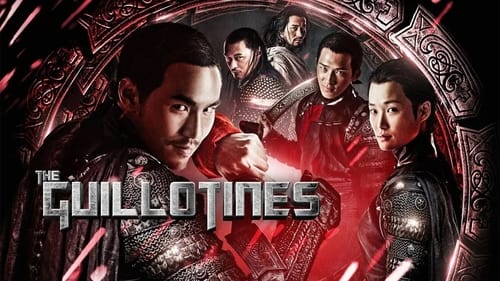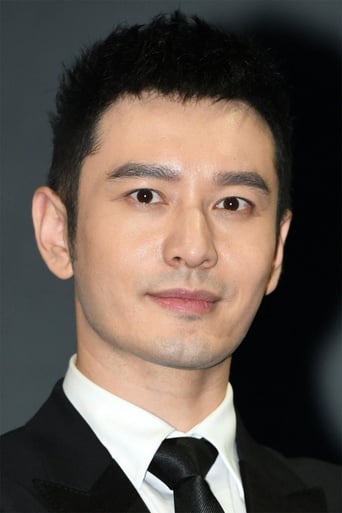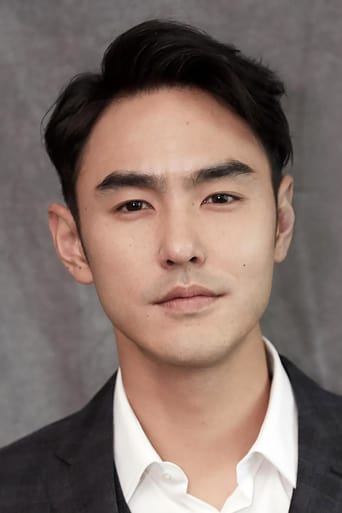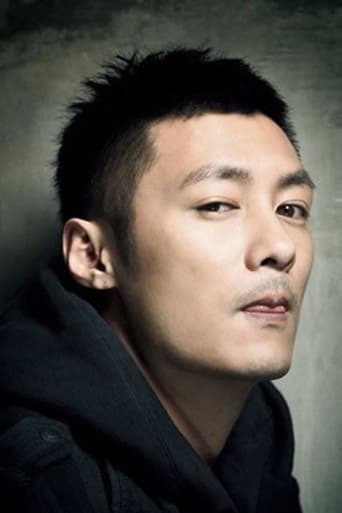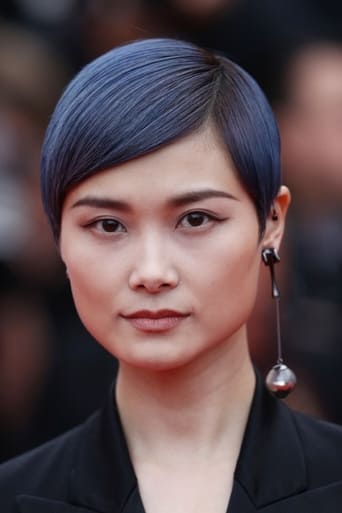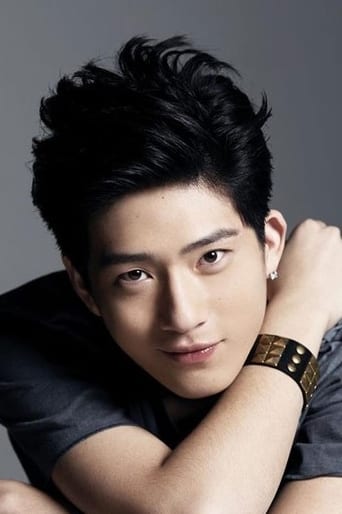VeteranLight
I don't have all the words right now but this film is a work of art.
SpunkySelfTwitter
It’s an especially fun movie from a director and cast who are clearly having a good time allowing themselves to let loose.
Curapedi
I cannot think of one single thing that I would change about this film. The acting is incomparable, the directing deft, and the writing poignantly brilliant.
Humaira Grant
It’s not bad or unwatchable but despite the amplitude of the spectacle, the end result is underwhelming.
kisifolda
At first I made a judgment based on the opinions contained herein and even agree with some of them. But after watching closely this beautiful film I could understand how we are led to hasty conclusions based on opinions, mostly unsubstantiated, who judge the book by its cover. You are right that in the first 10 minutes the film has plenty of action and logic had to show how the guillotine works. I found this very original idea. For many of us, especially the younger generation, do not know and have never seen or talk at the beginning of the Flying Guillotine. After the first 20 minutes the film tends to show what happens with the team obsolescence due to technological developments of the time because of the advent of the Gun. And that has an impact, as well as today, the team members because they feel they are no longer needed. The film also shows how the Empire was maintained, in error, and then the next Emperor, despite being a man on the changes of time, did not seek to change the form of government inherited from his father. Something that only happened after. I confess I was touched by the spirit of the movie and cry with the courage of the directors to show how "the people" Han were treated back then. And that made me very shocked. They were summarily executed for whatever the reason. I advise that before you issue a previous judgment, just as I did, take a chance and watch the movie. Then come back here if possible, send your opinion is worth it to help many. But counsel. You must undress climate "I want action." In my opinion this movie deserves note 6.5 at least.
kgchang
As the summary states, this movie was terrible. It's almost as bad as Choy Lee Fut (2011) but at least this one has some action. But make no mistake, it's bad. The CG is laughable. Dialogue is terrible. None of the characters make you feel for them, which only makes it worse when certain characters are crying for the whole movie. Crybaby assassins?? Almost believable. Seriously, more tears shed than Twilight 2.Most of the scenes are just ridiculously acted out and shot. They tried to be artistic and emotional but it just comes off as campy. Seemed like it had a decent budget, but a lot went wrong during the production. Who knows.Anyway, this was just meant to be a warning for those of you who thought to look up a review before spending your hard-earned cash (and time) on a movie. Watch something else. I rarely write these things, mostly as a service to other unsuspecting viewers. This ranks up there with the previously mentioned Choy Lee Fut and Skyline.
DICK STEEL
Sure, we'd need an upgrade or two. After all, this is the age of digital effects, so the guillotine weapon is now completely CGed with a bit too much information, showing the implausible tech wizardry that goes on inside the weapon, now resembling a sickle-sword in two parts, one that contains the revolving, spinning wheel that hooks onto one's neck, extends a couple more mean looking blades, before a yank of a chain decapitates one's head. Do we get to see the full works? Yes, despite some censored bits, but considered that the best demonstration of the weapon comes in the first ten minutes, that's all about what you can see of a film whose title is the weapon. Bummer.With no less than having six writers involved, you'd think at least one of them had the sense to make the utilization of the weapon a more frequent point in the film, especially when we have seven characters in a team, all of whom take up fanciful titles like a basketball team, operating like a dedicated SWAT platoon, headed by Leng (Ethan Juan). The story turned out to be convoluted, a classic case of having too many cooks involved in the brewing of the broth, and with desire to help director Andrew Lau concoct an Infernal Affairs equivalent of a martial arts story complete with twists and turns hinged on loyalty, brotherhood, and a whole lot of hidden agendas.Emperor Yongzheng has the crack Guillotines team set up as a secret underground army of his to wipe dissent amongst the populace, and this continues during the reign of his son Qianlong, who is adamant in embracing modern technology and weaponry, and also to wipe this dark episode of a blot on his dynasty's rule. To do so, he has a sworn group of those whose astrological star signs are aligned to his, whom his father had dispersed through various arms in the government, such as Du (Shawn Yue), an Imperial agent, and even Leng himself. The main antagonist to his dynasty is Wolf (Huang Xiaoming), the head of the rebel Herders gang, who is Han and going around rousing support from the oppressed and disgruntled, and soon enough we have Leng and his Guillotines open the film with a big action sequence that may just be the final entertaining fight you'd see in the movie.That's because with the embrace of guns and cannons, which boasts a far greater reach that the Guillotines infamous ability to kill within 10 steps (only), Qianlong is also keen to have new toys, and to do so, schemes to justify them while at the same time rid his rule of those who had served him, and his father, well. Opportunity comes when Leng's teammate Musen (Li Yuchun), who is also daughter of the Guillotines chief (played by the legend Jimmy Wang Yu in a non combat role, unlike in Wu Xia) gets kidnapped by Wolf, and during their rescue mission, has Du unceremoniously tagged along their quest. Fine so far? Great, because everything else that came after is more talk than action. Soon we'd see Leng being more of a brooder than a man of decisive action, as each of the major characters begin to reveal true intentions, centered around what it means to be sworn to loyalty and brotherhood, yet being in a fix when required to perform execute someone else's dirty intent. There's opportunity for gratuitous massacre on screen just to up the body count, as the Guillotines crack team become more caricatures as the narrative moved along, rather than the feared team that operated in the shadows.There's also a lot of The Last Samurai in this, given the very obvious guns and cannons versus sword fights and primitive weapons employed by the masses, in what would be an emperor's degree to wipe his enemies, that by the time this rolled out you'd know how everything would end, since Qianlong is after all very much one of the longest reigning monarchs in Chinese history, and all fantasy of rebels rewriting that, is zilch. The entire second half of the narrative also had Leng rescued by the enemy Wolf, and brought to see the light on what is the true meaning of peace and harmony, when living amongst those whom he had once sought to silence with his deadly spinning wheel at the drop of the hat through a decree by the courts.Ethan Juan probably had it in his contract to shed a lot of tears and bawl like a crybaby in this one, while Shawn Yue, with Infernal Affairs tucked under his belt, performs in a similar capacity, albeit this time in a medieval get up. Huang Xiaoming's role was the most curious in the film, being almost messiah like, the chosen one seeking a way to lead his people out of misery, preaching his brand of politics and revolt through the many pockets of Han community still scattered around, and predicting his own untimely demise in what would be a necessary sacrifice he had foretold to bring about reconciliation. Even his make up and costuming looks traditionally messiah-like, although he held his own when non-violence doesn't seem to sway ideals.It's probably about time that martial arts films inspired by those of old, stick to what made them genre in the first place. Nobody's quibbling if there's a solid story, but in trying to be intellectual and artificially raising philosophical examination, The Guillotines becomes a tired exercise attempting too hard to achieve something more cerebral, forgetting its entertainment aspect, and what had made its namesake famous in the first place, akin to the movie's Qianlong in attempting to wipe out what is remarkably cheesy in its mythos after having to ride on the goodwill of the franchise's coattails to have this made.
moviexclusive
Just so you are under no illusion of the lethalness of a flying guillotine, a thrilling opening sequence sees the titular group of assassins under Emperor Qian Long's command using the feared weapon against a gang of rebels known as 'The Herders'. Dispatched from its wielder like a flying wheel, it locks around its target's neck, activating a volley of blades within capable of decapitating a head right off its body. It's not a pretty sight no doubt, but still a perfect precursor for what is lined up.'The Guillotines' is not a pretty movie; rather, things look perpetually grimy and gloomy- much like the fate of the assassins led by Nala Leng (Ethan Juan). Plucked as orphans from a young age, they know no family but their own fellow comrades in arms. Then despite being the most formidable of the Emperor's soldiers, their status was never made official; lest the throne be accused of resorting to "dirty" methods to get rid of its enemies. And when the Emperor decides it is time for reformation, they are regarded as threats and hunted for dead. In the hands of a lesser producer, such material might have been just the subject of another run of the mill big-budget period action blockbuster; but with Peter Chan on board, you can be sure that 'The Guillotines' will be so much more. And indeed you will not be disappointed, as Chan assembles some of his best screenwriters – Aubrey Lam ("Perhaps Love", "The Warlords" and "Wu Xia"), Joyce Chan ("Bodyguards and Assassins", "Wu Xia") and Jojo Hui ("The Warlords") – to pen a compelling story on power, leadership and loyalty.Of the three, it is the last that gets most prominent play – not only are the Guillotines forced to re-evaluate their blind loyalty to the Emperor, their leader Leng is faced with an even bigger dilemma as he is made to choose between the brothers he has fought with and his childhood buddy and Imperial Agent Du (Shawn Yue) with whom he had sworn their allegiance with to the Emperor when they were mere children. Leng and his fellow agent Musen (Li Yuchun) are further challenged when their arch enemy Wolf (Huang Xiaoming) – the leader of the "Herders" – turns out to be much more than just an anarchist.As bit by bit of each character's background and motivations are revealed, the viewer is challenged to put aside conventional archetypes of hero and villain, good and bad, right and wrong. Even as the movie begins with an action-oriented approach, director Andrew Lau adroitly adopts a much more elegant character-driven narrative towards the second half – and it is indeed an achievement when each character turns out to be more morally complex than we would have expected when we are first introduced to them.Yet even while maintaining an intimate focus on the characters, Lau doesn't lose sight of the larger context against which the character struggles unfold. At the crux of the turmoil is the Emperor's thirst for power, the need to enslave the Han Chinese perceived to be antagonistic to his authoritarian rule. Then when the Emperor first sends the Guillotines and subsequently a whole regimen of fire-armed soldiers to quell the unrest and demand obedience, the film thrusts into prominence the consequences of a rule by force, even if it is meant to serve a greater purpose of unification. Right until an empathetic speech at the end on the importance of a rule founded on respect, the movie cleverly earns real-world relevance in its lessons on reform and revolution – especially given the recent leadership transition in Mainland China.Such lofty ambitions rest on the shoulders of a young and fresh cast – thankfully, each perform at least adequately according to the demands of their respective roles. Up and coming Mainland actor Huang brings an appropriately rebellious yet grounded touch to Wolf; while Juan and Yue are well paired with each other as the "brothers" whose friendship is tested by their supposed unwavering loyalty to the Emperor. Li, who also sings the theme song, is surprisingly affecting as one of the Guillotines forced to re-assess everything she knows when she is taken hostage by Wolf. And with Peter Chan's assistance no doubt, the movie gets a nice boost from veteran actors Jimmy Wang Yu and King Shih-Chieh, who shine in their bit roles as the leader of the Guillotines and commander of the border Army respectively.Compared to the excellent drama at play, the inevitable action sequences choreographed by veteran Lee Tat-Chiu seem to be merely perfunctory. Only two sequences – the first described at the start of this review and the second when Wolf's men conduct a daring ambush in broad daylight to rescue him – see the famed 'flying guillotine' deployed in its full glory, with the rest consisting mostly of some of the biggest explosions you've seen in Chinese cinema. That's not to say they aren't well done, but the most absorbing parts of the movie still belong to the character drama.Considering the troubled production history behind the film – conceived first as a remake of the classic Shaw Brothers' film 'Master of the Flying Guillotine' and then losing first choice Teddy Chan as director – it's to both producer Peter Chan and director Andrew Lau's credit that the film is this outstanding. Deftly balancing complex character-driven drama with gripping action, Lau delivers one of his best and most challenging films since 'Infernal Affairs' – with Peter Chan proving once again that his Midas touch in films (whether as a producer or director) is still very much alive. Even though the Guillotines only lived as myth and were never officially recognised, this movie will go down as one of the finest examples of Chinese cinema this year.

